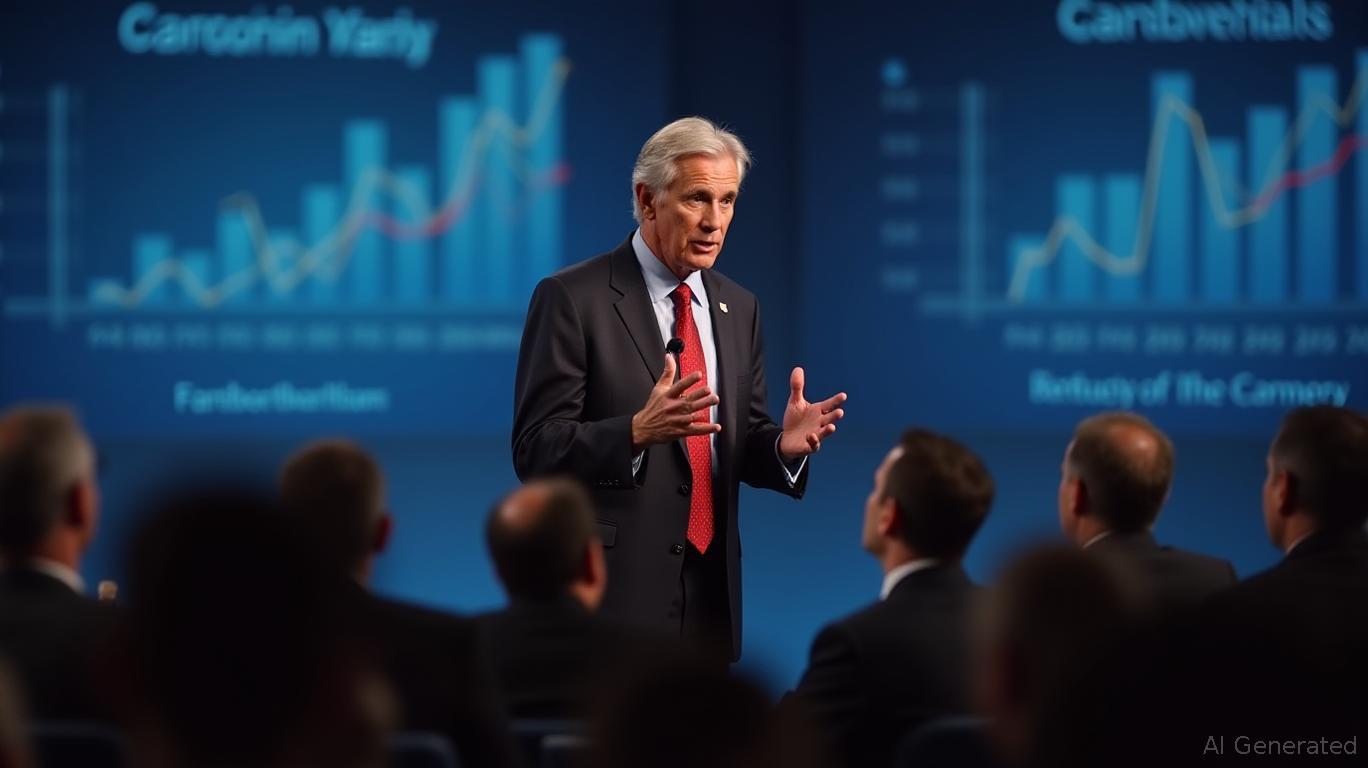Reeves' Balancing Act: Tax Policy Changes and Economic Expansion
- UK Chancellor Rachel Reeves faces urgent fiscal pressure to address a £20-35 billion deficit amid rising debt and economic risks, per NIESR analysis. - Proposed tax reforms include a 20% exit tax on high-net-worth individuals and a mansion tax on £2M+ properties, targeting wealth over income to avoid manifesto breaches. - Critics warn these measures risk distorting property markets and reducing revenue, while Ryanair CEO Michael O'Leary threatens operational shifts due to proposed air travel taxes. - Ree
Chancellor Rachel Reeves is under increasing scrutiny to achieve the UK's first primary budget surplus in more than twenty years, as the nation's public debt approaches 100% of GDP, according to a
The budget Reeves will present in November 2025 is likely to focus on tax changes to close a fiscal shortfall of £20-35 billion. Leaked Treasury plans indicate potential policies such as a 20% exit levy on assets for wealthy individuals leaving the UK and a mansion tax on homes worth over £2 million, as reported by

External factors are adding to the fiscal difficulties. Ryanair CEO Michael O'Leary has declared that the UK economy is "doomed" if current policies persist, criticizing planned tax increases on aviation and wealth as harmful to economic growth in an interview with
Reeves has also been active on the international stage, meeting with European finance ministers in Copenhagen to deepen trade and defense partnerships. She stressed the importance of "fair and enforceable trade rules" to benefit UK businesses and reaffirmed the UK's pledge of £4.5 billion in military support for Ukraine, as reported by
The stakes for the November budget are considerable. Although Reeves has not confirmed any tax increases that would contradict Labour's manifesto, she admitted in her pre-budget remarks that "difficult decisions" are necessary to balance debt reduction with public investment. Experts believe these policies will challenge Labour's political resolve, especially as public approval for taxing the "super-rich" stands at 75%, Finance Monthly noted. However, HMRC analysis cited in Finance Monthly suggests that behavioral changes in response to exit and mansion taxes—such as moving assets abroad or delaying property sales—could reduce expected revenues by 20-40%.
As the UK faces this pivotal fiscal moment, Reeves' ability to balance immediate revenue demands with sustainable growth will be crucial. The forthcoming budget will serve as a key test of Labour's capacity to blend economic realism with its progressive goals.
Disclaimer: The content of this article solely reflects the author's opinion and does not represent the platform in any capacity. This article is not intended to serve as a reference for making investment decisions.
You may also like
Bitcoin Updates: Institutions Wager on Bitcoin Pullback While Market Awaits Broader Economic Triggers
- Matrixport highlights Bitcoin's near-oversold levels as potential "buying the dip" opportunities amid declining on-chain activity and shifting market structure. - Institutional confidence grows as entities like The Smarter Web Company and Hyperscale Data accumulate BTC during price dips, signaling long-term strategic positioning. - Analysts warn sustained recovery depends on macro catalysts like regulation or economic shifts, despite technical indicators showing early stabilization and $100k support. - M

Court to Decide Whether IEEPA Tariffs Exceed Congressional Powers
- U.S. Supreme Court will decide if Trump's IEEPA tariffs violate Congress's exclusive tariff authority under the Constitution. - $90B in collected tariffs could be challenged, with businesses like Learning Resources Inc. facing catastrophic penalties from strict deadlines. - Legal experts argue IEEPA wasn't intended for tariffs, while Trump administration defends them as national security measures against China. - A ruling against Trump could limit presidential emergency powers and reinforce congressional

Bitcoin Updates: Federal Reserve's Quiet QE and Institutional Moves Drive Bitcoin Toward $140K Even Amid Pullbacks
- Bitcoin dips below $100,000 as experts like Arthur Hayes and Bitwise CIO remain bullish, citing structural market shifts and Fed-driven "stealth QE" liquidity injections. - Institutional demand dominates a maturing market, with miners scaling operations and corporate treasuries adopting Bitcoin amid declining retail participation. - Analysts predict a potential $140,000 rally by year-end, driven by Fed balance-sheet expansion, improved on-chain metrics, and ETF demand recovery despite geopolitical risks.

